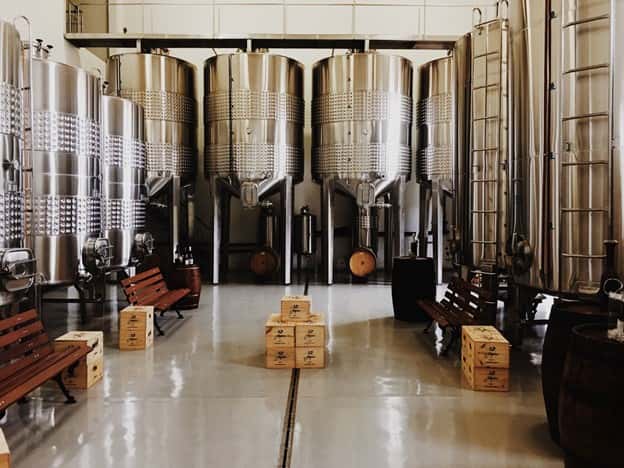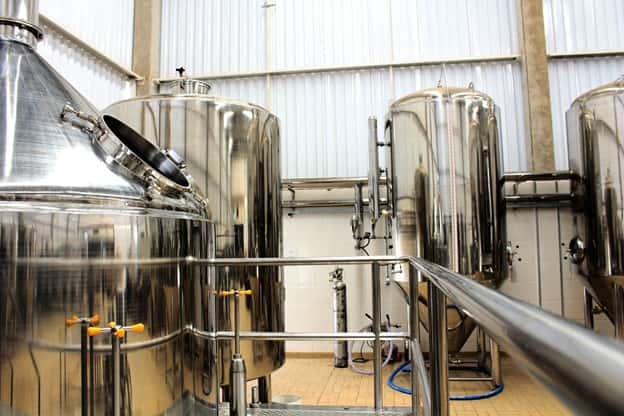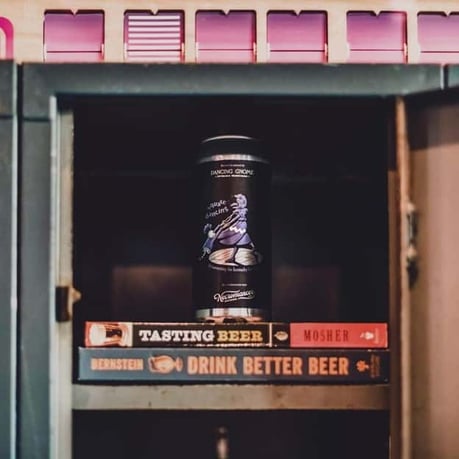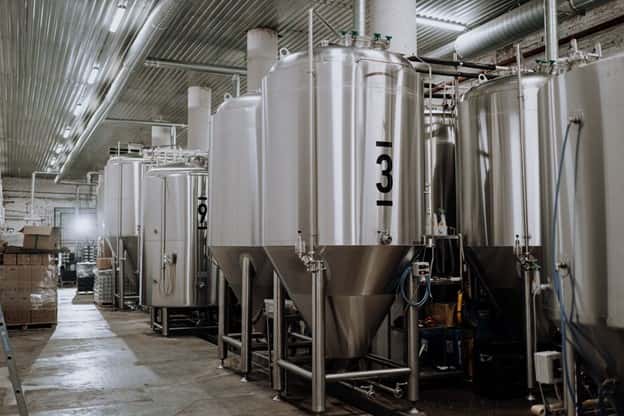Brewery Business Plan: Getting Started

August 3, 2021

Beginning a brewery often starts as an idea between friends, the lifelong goal of a homebrewer, or a business venture that a longtime brewer that is ready to start on their own. In all these scenarios, the common thread is passion for beer and a spirit for entrepreneurism. Starting with a strong business plan is the first step to seeing those dreams come true.
What We’ll Cover in This Piece:
Why a Brewery Business Plan is Important

A business plan is not a checklist or a fill-in-the-blank activity, it is a living, breathing document that will evolve throughout the life of your brewery. Most importantly, if your new brewery requires investors or start-up capital, you will need a business plan that includes growth and revenue projections along with compelling overall market analysis. Potential investors want to see that you have thought through challenges, understand your market, and are poised to be profitable.
Developing a business plan also brings critical flaws to the surface and allows you to address them. Even in a perfect situation, there are always hurdles. Your business plan can help you adjust your approach.
Getting Started

The prospect of starting a new brewery is exhilarating and it’s easy to jump right into the fun stuff—the name, logo, labels, beer styles, etc. However, the first place you should start is with research, research, research. Some initial questions you’ll need to answer:
- Will the market resonate with my name?
- Is it already in use?
- What are the zoning restrictions and requirements for my target location?
- How much equipment do I need to purchase in the beginning?
These are just a few examples of some very early hurdles brewery start-ups face. There are countless questions to tackle, but developing a cohesive business plan based on research will lead you to these answers.
“For us, our brand concept was a bit different. We made ‘resurrections’ a core pillar in our brewery’s differentiator,” says Ben Butler, Founder of Top Hat, a craft beer branding agency, and Necromancer, a craft brewery in Pittsburgh that opened this past March. “ Not knowing how the market would react to that, we leaned more on the conservative side to start. We got equipment that would give us the volume to make enough to keep the doors open, but didn't go big enough that we'd be sitting on tons of stockpiles if something didn't go as planned.”
Butler says writing a good business plan helped him explore these different scenarios and ultimately choose the one that was best for his new brewery.
Elements of a Good Brewery Business Plan

There are thousands of templates on the internet to start a good business plan. Even in your desktop software office suites like Word and Excel, there are step-by-step guides. But for a brewery startup, look for a template that focuses on a retail business.
Beyond generic templates, here are a few helpful tips and tricks.
Executive Summary
Even though this is the first section of your business plan, you will fill it out last. Because here you are summarizing the entire business plan. You need to think through each section and once you’re done use this executive summary to catch one’s eye -- someone like a group of investors or members at a bank. Focus on your unique opportunity, concept, and competitive advantage. What makes your brewery attractive to the market? Here you’ll also include an operational plan summary and detailed financial analysis, specifically if you are looking to raise funds for the brewery.
Business Overview
This section contains all the basic information about your brewery including the legal name, doing business as (DBA), and legal structure. Crafting your vision, mission, and core business values is the first step in defining what makes your brewery unique. Ultimately, answering these questions will help you determine other important elements such as the branding, logo, and labels of your brewery.
Business (Product) Description

Typically, this section contains most of the nuts and bolts of your brewery: Location, size, product offerings, etc. However, one segment that tends to be overlooked is a deeper focus on your business's mission, vision, and core values. In today’s social climate, it is essential for a new brewery to understand and be a part of the broader cultural conversation.
According to Julia Herz, formerly with the Brewers Association and now Founder and CEO of HerzMuses Enterprises, a company on a mission to help small businesses and nonprofit organizations, it’s important to clearly define your brewery’s place in the greater community. “Generally, craft breweries have come of age using their craft beer as a cause for other causes. This aligns with current cultural patterns from many consumers,” says Herz. “Despite the trends, many breweries have not been aligned with effective ways to reach and attain diverse employees nor have slam dunked safety and sustainability programs. Craft breweries should focus on supporting their surrounding communities, which they excel at, and using their small businesses as a catalyst for change by lifting and advancing all walks of employees and customers,”
In 2018, as reported in Forbes and according to the2018 Conscious Consumer Spending Index, 59 percent of people bought goods or services from a company they considered socially responsible, and 32 percent of Americans plan to spend even more in the future year with companies that align with their social values.
Focusing on diversity and inclusion at this early stage in business planning will position your brewery to be a leader in the community, helping to attract culturally conscious customers and even talented employees. “This approach can be incorporated in the brewer brand by stating their intentions to be leaders and walking the walk. Today, we are clearly in a refreshing reckoning, and businesses that do not lead the conversation will be forced to follow,” says Herz. “On the diversity front, we each have room to: identify and address the unconscious bias that may exist within yourself and your team; give people an anchor they can relate to by hiring a diverse staff set and attracting various customers; making sure everyone feels invited and welcome at your brewery; and making sure everyone has a comparable experience.”
Market Analysis

Understanding your market demographics, size, and buying trends is paramount to developing a profitable business. Yes, it’s more research. But, overlooking the market and competitive landscape leads to common pitfalls in planning, and ultimately your brewery’s success.
Once you have assessed the competition, determine what makes your business unique and focus on your differentiation. Tristan Chan, founder of the Porch Collective, a company focused on bringing hospitality brands to life through powerful storytelling, stresses the importance of focus. “I often find that breweries…try to do too much and focus on the wrong things. I can't stress how important it is to tune out all the noise and focus on what you're doing as a brewery and not what others are trying to do down the street. If you hire the best people, take care of your staff, and trust them to execute, you'll go a long way.”
Sales and Marketing Plan

Branding
Bringing your vision to life through branding is an important aspect of your sales and marketing plan. Haphazard branding results in market confusion and a missed opportunity to create customer loyalty.
“Investing in taking the time to cultivate a thoughtful and relevant brand identity is critical in building a loyal following and long-term brand awareness,” says Chan. “Once that brand identity has been established, executing a consistent brand voice across all customer touchpoints and external communication helps to further drive home who you are and what differentiates you from other breweries.”
Creating a cohesive and consistent brand that is reflected throughout your business ensures your market can easily identify your products.
“I'll say this off the top—the best branding is making good beer. If you're doing that, branding's job is to make sure the experience around that beer does it justice, identifies your product at a distance, entices someone to pick it up, and keeps them thinking about it until they pick up another one,” says Butler. “I'm fortunate to have a branding agency in my back pocket, so our brand came out of the gate at a high level of refinement and maintains a great deal of consistency. I would never say something is set in stone, but I don't see us veering from our brand concept any time soon.”
Social Media
Social media has changed the way businesses approach traditional marketing and advertising, and harnessing the power of social media requires strategy and planning.
“I cannot stress the importance of hiring a social media person who has experience in photography (and owns a quality camera), as well as storytelling that matches your brand identity,” says Chan. “Speaking to your audience in a consistent brand voice is critical for long-term success, but quality photography and now videography are becoming even more important in standing out in a crowded market.”
Operation Plan

This is where, as the adage goes, the rubber meets the road. An operations plan encompasses your licensing plans, team structure, point-of-sale system, suppliers, and anything else related to the day-to-day of your brewery.
One of the biggest hurdles for any business-in-planning is figuring out the ins and outs of running a business. “Common blind spots craft breweries encounter in their first year include not being experienced running a business even though they are experienced as brewers,” says Herz. “Running a craft brewery business takes three main things: Expert in making world-class beer; an expert in sales and marketing and delivering a world-class experience that positions the customer as the hero; and an expert in internal operations, employee and stakeholder management, business projections, and business savvy.”
Remember that you do not have to be an expert in all aspects of running a business, that’s why you hire a great team around you. But that means it is important to budget for outside support where needed.
Building on the cultural awareness aspect of your brewery, in this section identify your business’s values. “Core values have to be identified, documented, transparently shared, and LIVED,” says Herz. “The last part is what seals the deal. If owners, leaders, and key stakeholders in any business don’t check the box on being examples of the values, the brand is undermined. Beyond profitability, value-based pursuits including safety, sustainability, and equity and inclusion should be a no-brainer for top-of-mind, day-to-day priorities.”
Financial Plan

Without question, this is the most important section of your business plan, especially if you are seeking capital from a bank or investors. Use tables, tables, and more tables in this part of your business plan to project revenue, show break-even analysis, and tabulate start-up costs and expenses, especially those associated with your equipment overhead.
“The biggest hurdle to starting a brewery is right-sizing your equipment. Equipment determines overhead. And overhead determines how much beer you need to sell to break even and make a profit. And that determines what sort of marketing pull you'll need. And so forth, and so on,” says Butler. “If your overhead isn't congruent with how much beer you can actually make and sell, you'll be out of business before you know it.”
Resources

While researching is paramount to developing your business plan, one of the best resources you have is your network of friends and colleagues. No one person has expertise in all areas of running a business. Leveraging your community for advice, as a sounding board, or as investors will help you shape your overall plan.
“I was fortunate to have a very encouraging and helpful network who gave me great advice. A special shout out to Andrew Witchey, the founder of Dancing Gnome, who was (and is still) an infinitely valuable source of wisdom,” says Butler.”What you quickly realize though is all the good advice in the world only takes you so far. End of the day, you need the finances and the stamina to get the project off the ground. Starting a brewery is extremely challenging and that should not be understated.”
Reach out to beer industry organizations like the Brewers Association, where you can access valuable research and tools as a Brewery in Planning member. And join your local brewers guild, which provides local resources and networking opportunities.
Other helpful resources
- Alcohol and Tobacco Tax and Trade Bureau
- America’s Beer Distributors
- U.S. Small Business Administration
- SCORE Small Business Mentorship
- BA’s FDA Resource Hub
- Directory of State Alcohol Beverage Control Boards
- Cicerone Certification Program
- The Brewers Association's Guide to Starting Your Own Brewery
Improve Your Brewery Production
Ollie is the platform built by brewers, for brewers™. Increase brewery productivity and sell more beer. Everything you need in one place.
